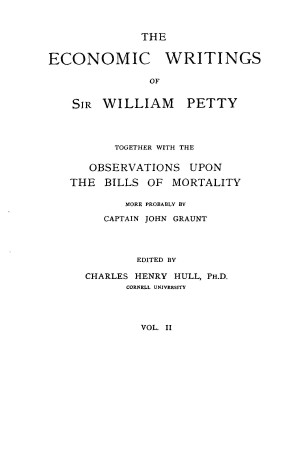
Part of: The Economic Writings of Sir William Petty, 2 vols. The Economic Writings of Sir William Petty, vol. 2
- Sir William Petty (author)
- Charles Henry Hull (editor)
Vol. 2 includes writings about the cities of London, Dublin, Paris, and Rome, as well as on money.